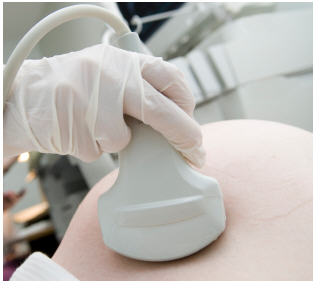
Exposure to Cortisol-Like Medications Before Birth May Contribute to Emotional Problems and Brain Changes
October 31, 2013—Neonatologists seem to perform miracles in the fight to support the survival of babies born prematurely.
To promote their survival, cortisol-like drugs called glucocorticoids are administered frequently to women in preterm labor to accelerate their babies' lung maturation prior to birth. Cortisol is a substance naturally released by the body when stressed. But the levels of glucocorticoids administered to promote lung development are higher than that achieved with typical stress, perhaps only mirrored in the body's reaction to extreme stresses.
The benefit of glucocorticoids is undisputed and has certainly saved the lives of countless babies, but this exposure also may have some negative consequences. Indeed, excessive glucocorticoid levels may have effects on brain development, perhaps contributing to emotional problems later in life.
In this issue of Biological Psychiatry, Dr. Elysia Davis at the University of Denver and her colleagues report new findings on the effects of synthetic glucocorticoid on human brain development. Their study focused on healthy children who were born full-term, avoiding the confounding effects of premature birth.
The investigators conducted brain imaging sessions in and carefully assessed 54 children, 6–10 years of age. The mothers of the participating children also completed reports on their child's behavior. The researchers then divided the children into two groups: those who were exposed to glucocorticoids prenatally and those who were not.
In this study, children with fetal glucocorticoid exposure showed significant cortical thinning, and a thinner cortex also predicted more emotional problems. In one particularly affected part of the brain, the rostral anterior cingulate cortex, it was 8–9 percent thinner among children exposed to glucocorticoids. Interestingly, other studies have shown that this region of the brain is affected in individuals diagnosed with mood and anxiety disorders.
"Fetal exposure to a frequently administered stress hormone is associated with consequences for child brain development that persist for at least 6 to 10 years. These neurological changes are associated with increased risk for stress and emotional problems," Davis explained of their findings. "Importantly, these findings were observed among healthy children born full term."
Although such a finding does not indicate that glucocorticoids 'caused' these changes, the researchers did determine that the findings can't be explained by any obvious confounding differences between the groups. The two groups did not differ on weight or gestational age at birth, Apgar scores, maternal factors, or any other basic demographics. Thus, the findings do suggest that glucocorticoid administration may somehow alter the trajectory of brain development of exposed children.
"This study provides evidence that prenatal exposure to stress hormones shapes the construction of the fetal nervous system with consequences for the developing brain that persist into the preadolescent period," she added.
"This study highlights potential links between early cortisol exposure, cortical thinning and mood symptoms in children. It may provide important insights into the development of the brain and the long-term impact of maternal stress," commented Dr. John Krystal, Editor of Biological Psychiatry.
ARTICLE:
“Fetal Glucocorticoid Exposure Is Associated with Preadolescent Brain Development,” Elysia Poggi Davis, Curt A. Sandman, Claudia Buss, Deborah A. Wing, Kevin Head. Biological Psychiatry, 1 November 2013 (Vol. 74, Issue 9, Pages 647-655, DOI: 10.1016/j.biopsych.2013.03.009).
